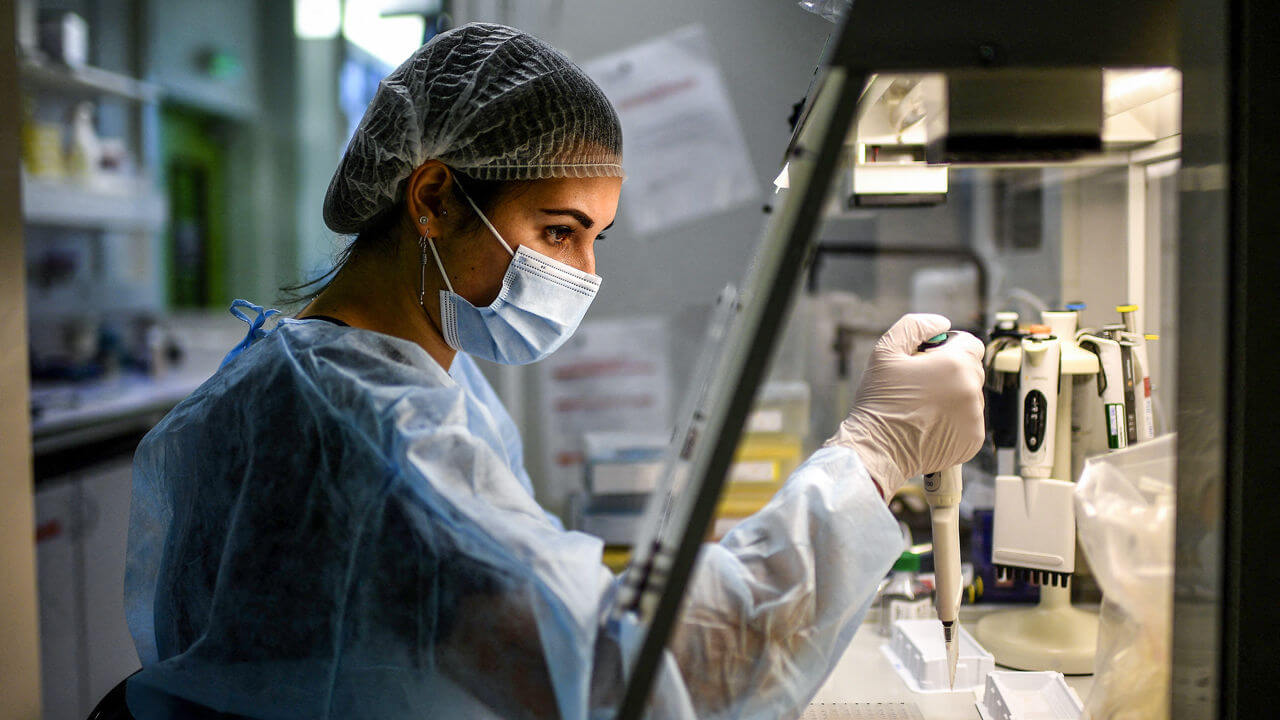More than a year after being officially designated as a pandemic, COVID-19 is still raging across the globe. Nearly 150 million people have been infected with the virus worldwide and over three million have lost their lives. Though the onset of the pandemic brought in multiple pledges of solidarity and mutual cooperation from world leaders and pharmaceutical companies in 2020, everyone’s fears about the absence of genuine commitment from those in power during this international health crisis have unfortunately materialised. And as a result, we are nowhere close to achieving global immunity anytime soon.
Experts suggest that around 70% of the world’s population needs to be fully inoculated for the international community to truly have a fighting chance against the pandemic. This means that more than five billion people need to be vaccinated, which amounts to about ten billion jabs (assuming two doses per person).
Though vaccination campaigns have picked up speed in various parts of the world, inoculation is still largely concentrated among high- and upper-middle-income countries. Poorer nations, on the other hand, which host nearly 80% of the world’s people, have so far been able to access less than one-third of the available vaccines. Given that the world currently has the capacity to produce only 3.5 billion doses in a year, and that developed nations have already secured most of these for their own needs, researchers have argued that unless manufacturing and supply can be distributed more evenly, it will be at least another two years until a significant proportion of people in low- and middle-income countries are vaccinated.
To address this challenge, more than 100 nations, led by India and South Africa, have asked fellow World Trade Organisation (WTO) members to temporarily waive patent rights on COVID-19 vaccines under the Agreement on Trade-Related Aspects of Intellectual Property Rights (TRIPS). If adopted, the waiver could help countries around the world overcome legal barriers preventing them from producing their own COVID-19 vaccines and treatments.
Also read: Patent Politics and the COVID-19 Vaccine: What Needs to be Done?
Though the proposal is being seen as an important opportunity for powerful nations to truly advance their leadership in fighting a debilitating crisis, it has been met with severe resistance. The United States (US), the European Union (EU), and Canada, among others, have argued against such a proposal, stating that it would disincentivise pharmaceutical companies from investing in developing medicines and vaccines in future pandemics. This argument centres around preserving intellectual property (IP) as a means to promote innovation, and enable research and development (R&D) efforts.
However, according to Médecins San Frontiers (MSF), the claim that IP enabled the R&B breakthrough in coronavirus vaccines and medicines is misleading. The novel nature of the virus and the unprecedented scale of the pandemic pushed governments as well as public/philanthropic funding agencies to invest billions of dollars into R&D, and these have been the primary drivers of the massive research efforts to date. Against such a backdrop, MSF argues that providing monopoly control over key health tools to large corporations is not only “unjustified and counterproductive,” but also contradicts the call for COVID-19 vaccines and treatments to be treated as global public goods.
Critics have also argued that existing flexibilities in TRIPS are sufficient to protect public health and increase access to vaccines. Technically, the agreement permits governments to compel companies to license their patents and allow the low-cost generic manufacture of vaccines. To this end, many countries like Canada, Germany, and Chile have amended their national laws to ease and speed up the government’s use of compulsory licenses. However, major players like the US, Switzerland, and the EU have routinely undermined the use of TRIPS safeguards in developing countries with limited political and economic resources to protect the interests of their pharmaceutical industries. Therefore, the current flexibilities are clearly not enough to address the challenge of the current situation.
Richer nations’ and corporations’ contributions to the WHO and Gavi’s COVAX facility are also being touted as another alternative to the TRIPS waiver. The global initiative, which aims to provide vaccines for 20% of the most vulnerable groups in various countries, has already received a billion doses (50% of its target) for 2021. However, whether it will be able to reach its goal remains to be seen, with donor nations focusing on inoculating their own populations first. COVAX also cannot ensure a scale-up in global production by itself, given that it relies on the production capacity of IP-holding manufacturers to supply doses and tools, which are largely based in high-income countries. Activists and public health experts have therefore called for a global effort to increase the number of suppliers to address the high level of global need.
Time is of the essence, and until a majority of the world is vaccinated, even the most advanced nations will remain under threat of virus mutation, which could render current COVID-19 vaccines ineffective. According to a survey of top international epidemiologists conducted by the People’s Vaccine Alliance, we only have about a year before the virus mutates to an extent where new vaccines are required. Such a grim outlook should force nations to do everything in their power to maximise vaccine coverage across the world as rapidly as possible. While an IP waiver alone will certainly not end the crisis, it will help reenergise efforts towards global cooperation to fight this pandemic, which should also focus on higher information sharing and capacity-building.

